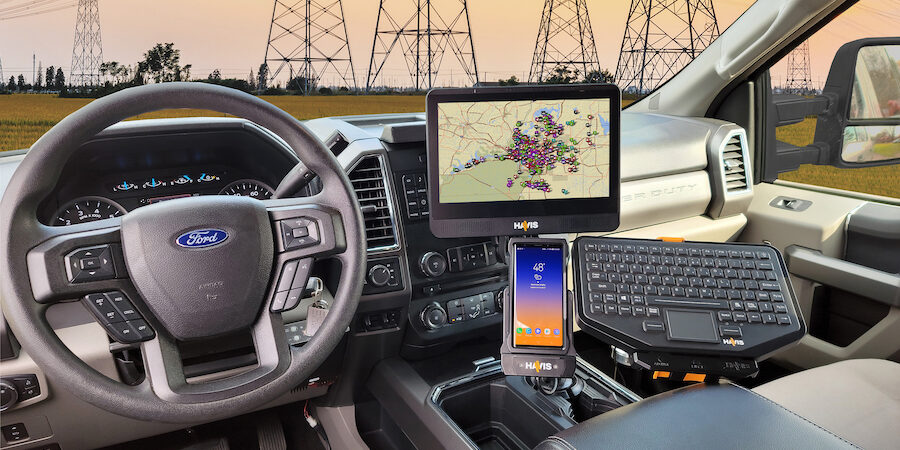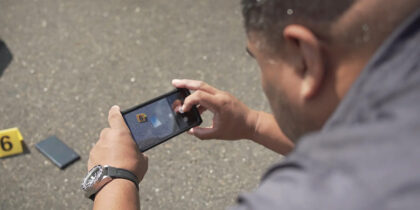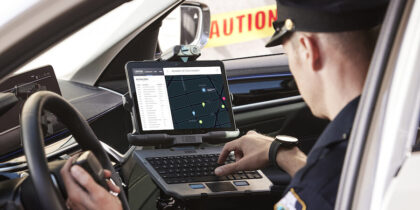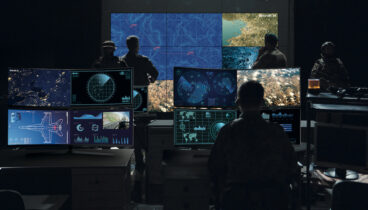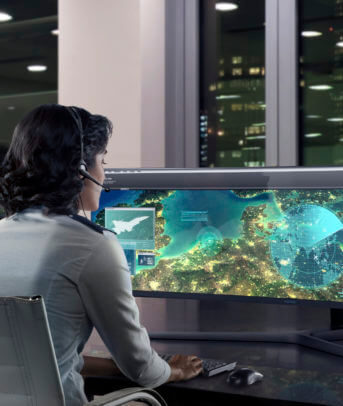When government personnel first saw Samsung’s DeX in Vehicle solution, it was clearly a radical departure from traditional in-vehicle computing. Although DeX was originally intended to provide a desktop experience in a home or office, Samsung’s public safety and federal teams quickly realized the potential for adapting the mobile-powered computing platform to a patrol vehicle environment.
By pairing a Galaxy smartphone with a mounted display and dedicated keyboard, DeX can replicate the functionality of an in-vehicle computer while providing two significant benefits:
- The smartphone makes it possible for agency personnel to retain full connectivity from the field to their vehicle to the office or station.
- Leveraging a commercially supported smartphone platform can yield substantial cost savings and streamlined device management.
Refining the DeX mount
Eric Augusto, lead for DeX in Vehicle solutions and partnerships at Samsung Electronics America, explains how DeX emerged as an in-vehicle solution. “We started by providing DeX stations to several of the leading in-vehicle hardware companies and told them they had complete flexibility in the initial prototype designs, including repurposing the DeX motherboard,” he explained. “There was a lot of feedback and collaboration, and the approaches varied, primarily on the positioning of the USB-C hub.”
The compactness of the DeX solution is proving popular and the smaller footprint provides mounting options, according to Augusto. “Ergonomics is key, and the positioning of the dock, keyboard and touchscreen is important to the user’s comfort and productivity,” he said. “It’s also critical that the installation doesn’t interfere with proper airbag deployment or become a projectile.”
In addition to in-vehicle hardware manufacturers, Samsung is partnering closely with other major hardware and software providers to drive mobile innovation forward while reducing costs and improving efficiency. “From helping a top software provider develop for Android for the first time to collaborating with another vendor to reimagine their entire mobile software ecosystem, we are working with our partners to provide a more agile, optimized DeX in Vehicle solution,” Augusto said. “We have also partnered with in-car video, situational awareness, virtual desktop infrastructure [VDI] vendors to optimize software for DeX—enabling one device for field, vehicle and office.”
Processes go paperless
Keith Redlin, a public sector innovation leader for Samsung Electronics America, collaborates closely with multiple agencies such as the Chicago Police Department, Santa Barbara Police Department, and Monroe County Sheriff’s Office that have rolled out the DeX solution. Redlin says there are several factors driving the level of interest in DeX in Vehicle. “One is the reduction in costs by consolidating your IT investment around one device — the smartphone. You can eliminate the cost of in-vehicle laptops, but more importantly, the smartphones require less management, and updates can be pushed over the air,” he explained.
“Many agencies are now considering what they will be able to do when every officer has a smartphone, and DeX is now a key part of that consideration. You see them light up when they realize the potential.”
Beyond law enforcement agencies, Redlin noted there has been a lot of interest from those working in corrections, both in parole and probation. “This is a major digital transformation for them because they’re so information-driven and, until recently, it’s been paper-intensive,” he said. “The utility of the smartphone really benefits field personnel.”
Corrections departments gain efficiency
One of the agencies that Redlin and Augusto are working closely with is the California Department of Corrections and Rehabilitation (CDCR), which has one of the largest protective-custody populations in the country. CDCR recently deployed smartphones to field personnel, and the benefits have been significant, according to Jeff Funk, CDCR’s chief of mobile application development. Agents have been able to access online information instead of carrying large casebooks with handwritten notes. When logging information themselves, agents can now use voice-to-text recording, which can reduce the time spent recording notes by 80 percent. The improved workflow efficiency also accelerates program referrals for parolees, which in turn improves program participation.
CDCR has initiated a DeX pilot and is evaluating different mounting and hardware options. “The DeX system will give our agents the ability to do anything they need in the field without having to come back to the office,” Funk said. “With DeX, we can reduce our costs, increase officer safety and provide a really effective tool.”
Today’s smartphones can support a wide range of police operations, and the more an officer can do on a single device, the more skilled the officer will become in using that tool. Fewer devices to manage means IT resources are not as taxed, and fewer devices to purchase means public safety funding can be dedicated to other priorities. Samsung DeX brings a whole new layer of opportunity to agencies that want to make the most of today’s technology and provide a powerful force multiplier to their field personnel.
Learn more about the cost savings that can be achieved with Samsung DeX for law enforcement in this white paper from the Public Safety Network. Discover how federal agencies can use DeX in Vehicle across emergency response, border protection, and more.
